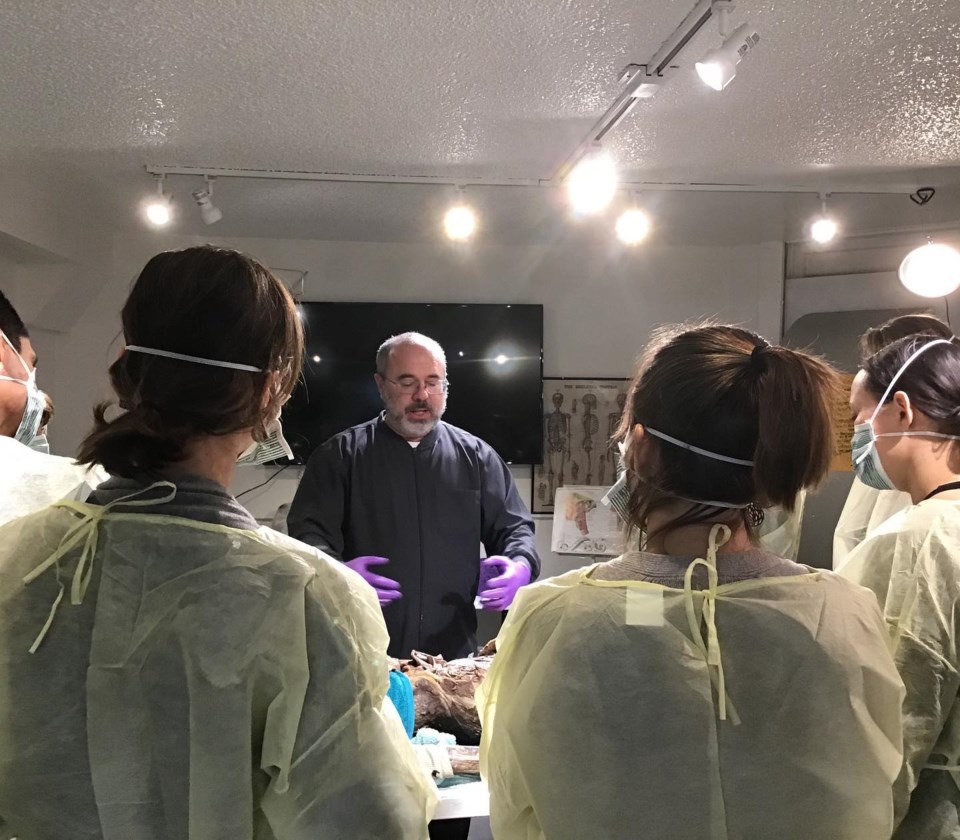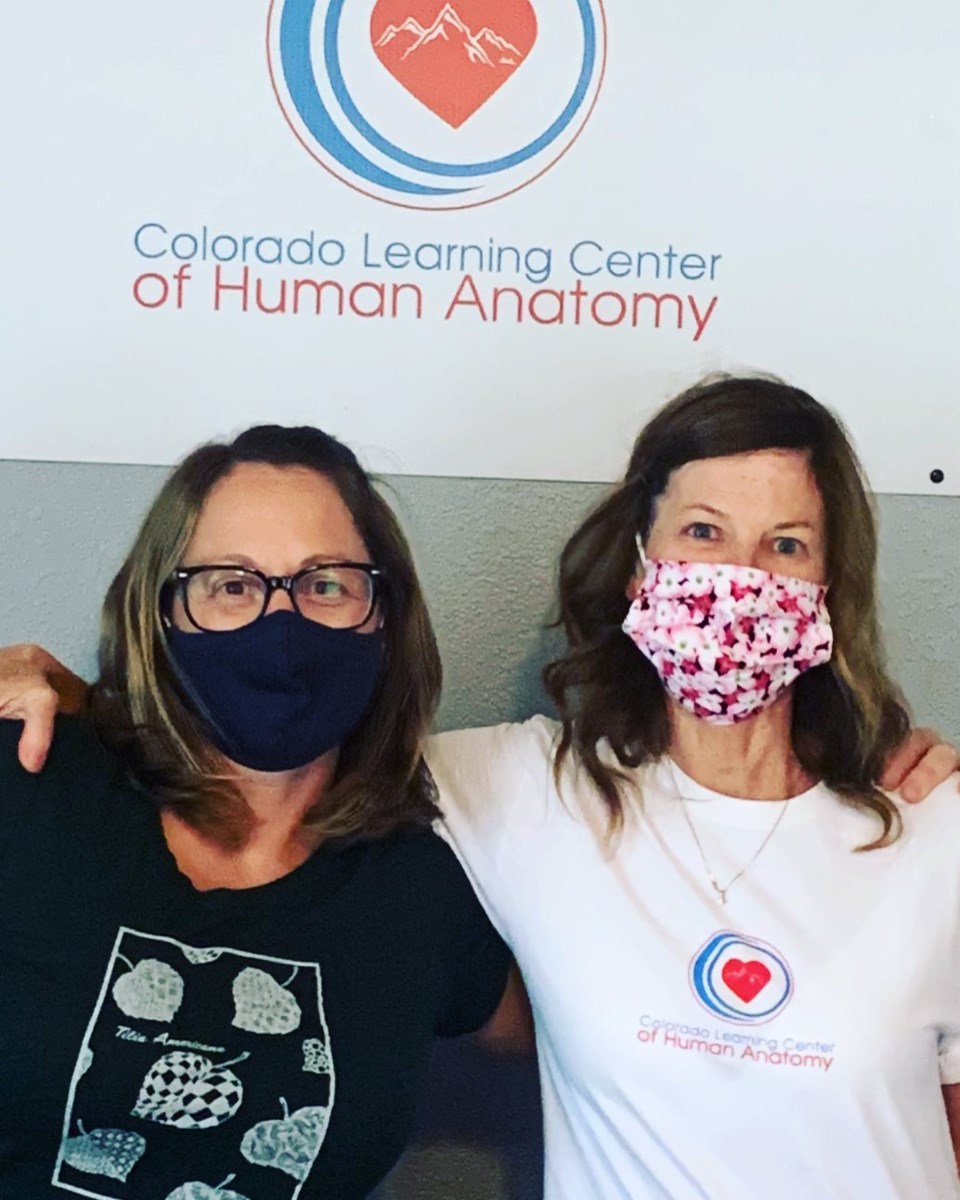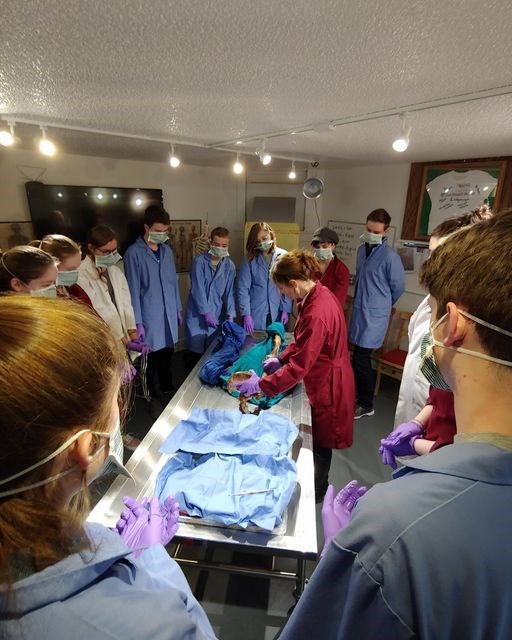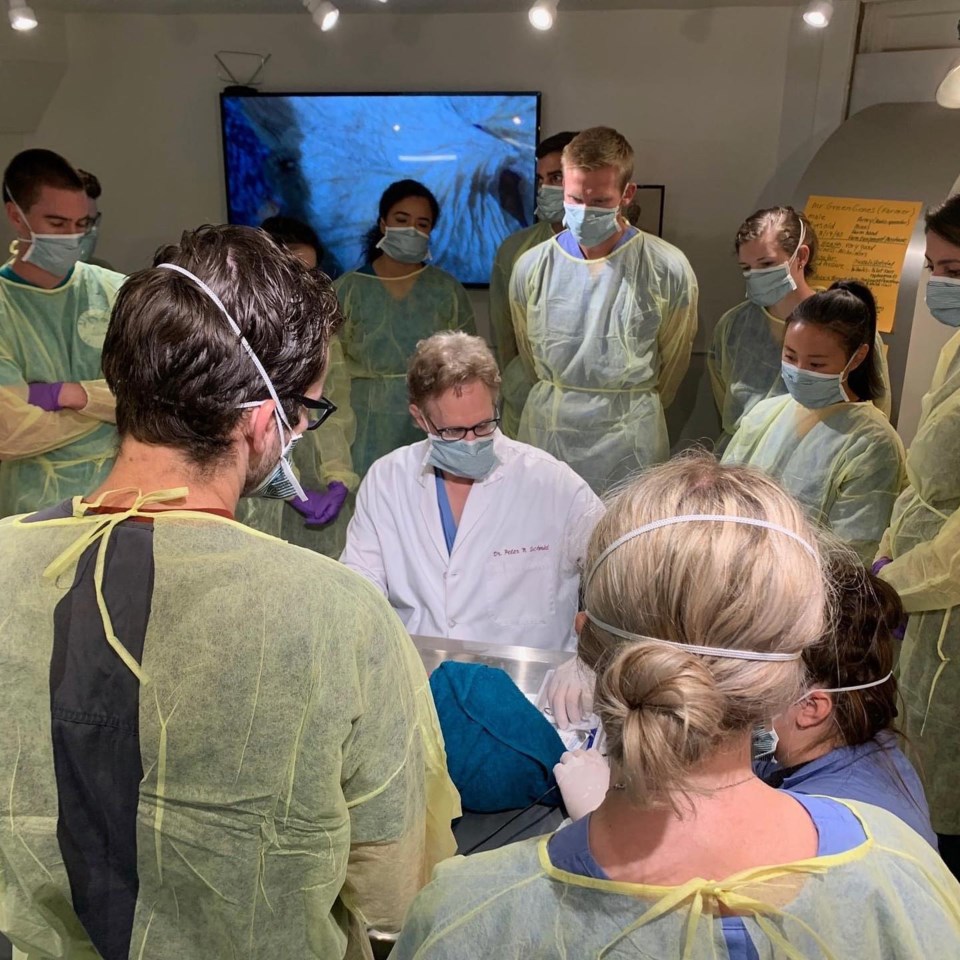At the Colorado Learning Center of Human Anatomy, sharing moments begin before living donors have died. In gratitude for their future donations, CLCHA offers them classes to improve their physical and emotional health. Some of those classes include Tai Chi, restorative yoga, acupuncture and Ayurvedic medicine.
Once donors have died, they are considered teachers and their bodies help educate a diverse group of learners including high school teachers, bodyworkers (e.g., massage therapists), yoga teachers, and, of course, medical professionals.
The Longmont nonprofit uses donated cadavers to teach anatomy and physiology, something Executive Director Beverly Boyer said she is proud to offer her hometown and beyond.
Boyer worked as a massage therapist for more than 30 years and also worked in the lab at Centura Health Longmont United Hospital. She learned a lot and wanted to bring the lessons to a broader audience than would have access to a hospital or research lab.
A continued focus is working with high schoolers to better understand their bodies. As classrooms shut down in response to the coronavirus pandemic, the lab, too, had to shut down.
“Our teachers couldn’t teach all of a sudden,” she said.
 Lloyd Mills teaches at the Colorado Learning Center of Human Anatomy.(Courtesy photo)
Lloyd Mills teaches at the Colorado Learning Center of Human Anatomy.(Courtesy photo)About six weeks after the initial shutdown, Boyer wanted to find a way to ease teachers’ and students’ e-learning challenges.
“Well, we wear masks, we wear gloves, what if we start to put some online education out there? Regarding the lab, let’s try to help some high schools out with online education from the lab that’s still true to life,” she said, adding the goal was to ensure online teaching was “educational, fun and interactive.”
The shift required some creative thinking.
CLCHA wanted to ensure its lessons met curriculum standards, so it began searching for a high school teacher to help.
“One of our biggest challenges was finding a teacher to work with. In reaching out to some of the teachers, they honestly didn’t respond, or they were in such panic, fear and anxiety themselves that they really couldn’t even plan a lesson with me,” Boyer said.
That wasn’t the end of the road, though.
“Then, I found a teacher who had a 40-hour internship that she needed to do and I reached out to her and said, we’re looking for a high school teacher to work with us with state standards so we can develop curriculum, develop some online videos that these teachers can incorporate with online/e-learning and make it interactive,” Boyer said.
That teacher is Aarika Capra, who teaches biology and honors anatomy and physiology at Brighton High School.
 Bev Boyer, director of the Colorado Learning Center of Human Anatomy, and Aarika Capra, the Brighton High School teacher that is helping the Longmont nonprofit develop its video lessons to meet curriculum standards.(Courtesy photo)
Bev Boyer, director of the Colorado Learning Center of Human Anatomy, and Aarika Capra, the Brighton High School teacher that is helping the Longmont nonprofit develop its video lessons to meet curriculum standards.(Courtesy photo)Now that COVID-related restrictions have eased slightly, Boyer and Capra have been able to work more closely on their project.
“We’ve gotten together, and we’ve gone over the curriculum and over what we want to cover and which donors we can utilize and which organs we’ll utilize and how we can interact, you know, in the lab, to make it a good experience,” Boyer said.
Eventually, Boyer said she hopes to incorporate questions at the end of video lessons, which typically run about seven minutes.
“We can incorporate questions for the students to answer and be responsible for responding to them with their teachers,” she said. “So, when they’re back online, live, ‘Did you watch that video? Did you interact with it? What did you learn? And, ‘Here are my answers for what I learned on that day.’”
Staff at CLCHA also hope to eventually add Spanish, sign language and closed captioning to the videos using grant funding and community donations.
Most labs are linked to hospitals, but CLCHA is “just a local nonprofit,” Boyer said.
Boyer said her favorite lesson is one on abdominal contents.
“I think what I love showing the most is the abdominal contents and, just how our organs work together and how they orchestrate so well and just understanding fun facts about the body,” she said,
Donors share their stories via interviews while living and then continue to do so after they’ve died.
“We’re facilitating a teacher who has come to us after they’ve died, and they want people to learn about their lifestyle. So, we have them sign a (Health Insurance Portability and Accountability Act) form that is different from a hospital or doctor’s office HIPAA form … that allows us to speak to the information they gave us,” Boyer said, “We don’t make up information. We say, ‘No. This is what we know. This is who they were.’”
Donor/teachers also are honored with the lighting of a candle and either music they chose or a story they shared about their lives.
Sharing moments happen within the greater Longmont community, too, especially with Heath Carroll from Carroll-Lewellen Funeral & Cremation Services. Since the facility has been supported for years by the Longmont community, the Carroll family is committed to giving back.
 A class of Longmont High students at Colorado Learning Center of Human Anatomy.(Courtesy photo)
A class of Longmont High students at Colorado Learning Center of Human Anatomy.(Courtesy photo)While the two are separate entities, Carroll said he is glad to show people another option as they consider plans for the end of their lives.
Boyer, for her part, is extremely grateful for all Carroll has done to support CLCHA. She began her work in Colorado Springs but wanted to bring it back to her hometown. CLCHA had an office at Fifth Avenue and Coffman Street, but when COVID hit, it wasn’t using it much and couldn’t keep it. Carroll stepped in and offered a similarly sized space for it to use.
“I’m forever grateful and thankful because we’ve had space and he’s never charged us rent,” Boyer said. “We’ve had over 2,000 people that have come through our program that have been through his building also.”
Previously, CLCHA offered classes at Centura Health Longmont United Hospital but is now planning to move them back to the space at Carroll-Lewellen. It is following COVID safety protocols with masks, gloves, temperature checks and limiting class sizes. There is enough space for social distancing as well, Boyer said.



